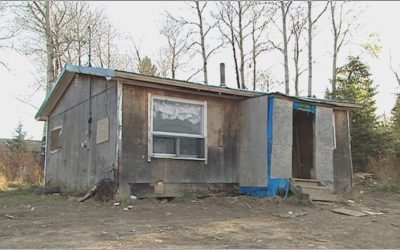
Canada’s major cities are pressing for more powers. Formerly led by just retired Winnipeg Mayor Glenn Murray, a coalition of the six or seven largest cities is pushing hard to bypass the provinces and deal directly with the federal government on a host of issues. This may not be good news for Canada’s exurban population.
Unsurprisingly, since most of its Parliamentary seats are urban, the federal Liberal government has been quite receptive to this group. At a meeting of big city mayors this winter, Mayor David Miller of Toronto said quite bluntly, “In my view cities need the full powers of government, like any province.” By the way, the City of Saskatoon, one of the most liveable and functional cities in Canada, was not invited to the meeting, much to the chagrin of its mayor. Think about that.
The “cities agenda” is linked to the view that cities subsidize the countryside. In terms of what money travels where, that position is at best confused. While the raw numbers show that our resource industries represent just a small fraction of the Canadian economy, their contribution is nonetheless crucial. If reconfiguring power relationships harms them, urban Canadians will suffer.
Their well-being depends on the food and resources delivered to them from the countryside. We shouldn’t take the efficiency of farmers and our abundance of high quality, cheap food for granted. So what if the farmer’s share of a loaf of bread is only two cents? Just try making bread without flour. Try and publish this newspaper without the newsprint from a forest company. And so on.
If big cities are granted the powers of provinces, where does this leave rural Canada? Nowhere, if the truth be known. Many naive rural leaders think this is all about more power for all municipalities. As if a small municipality in agro-Manitoba would ever get the same powers as Winnipeg. Not in a million years.
Let’s play the “cities agenda” out and say that cities do get the powers of provinces. Do rural areas get the same powers? Would the provincial government, such as it is, be just for rural regions? Right now, proportional voting weights tilt the balance slightly in favour of rural voters. Without that bias, demographics dictate that rural interests would be swamped in a stampede to favour cities.
Cities already impose their wills on rural regions via majorities in provincial and federal governments. Urban-dominated legislatures have hobbled rural economies with Draconian laws like the Species at Risk Act and firearms registration. What flies in big cities can be disastrous outside of them.
Our rural leadership should insist that this change. Let urban citizens vote in their jurisdictions, but the powers of their elected officials should stop at the city’s edge. Rural regions cannot be at the mercy of cities. Furthermore, all provincial and federal departments with largely rural mandates should vacate cities and move their operations out to the hinterland. This would only be fair. Right?
It’s time for our rural leaders to play hardball in terms of the new “cities agenda” and demand significant quid pro quos for their regions.



